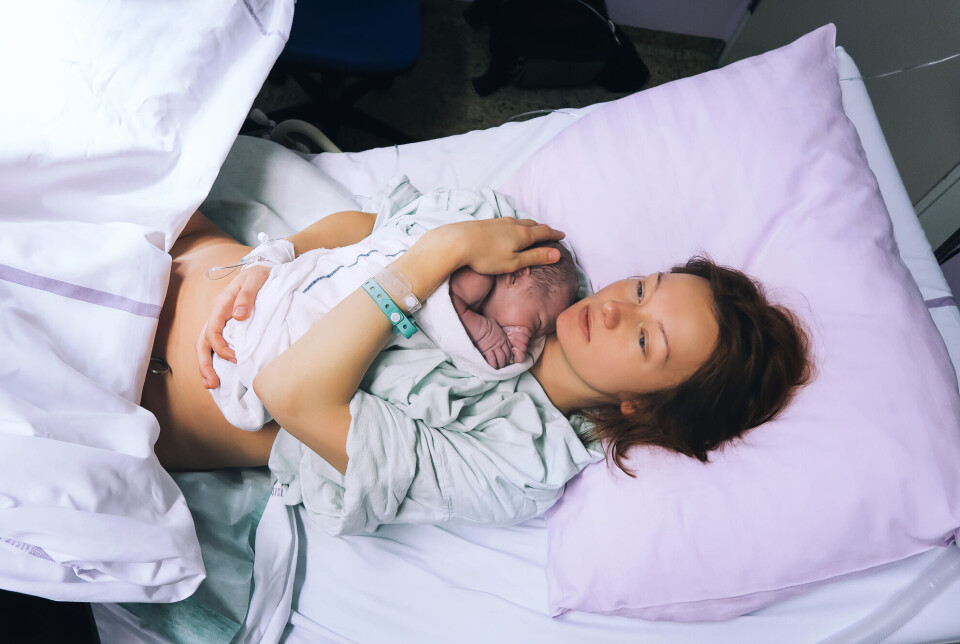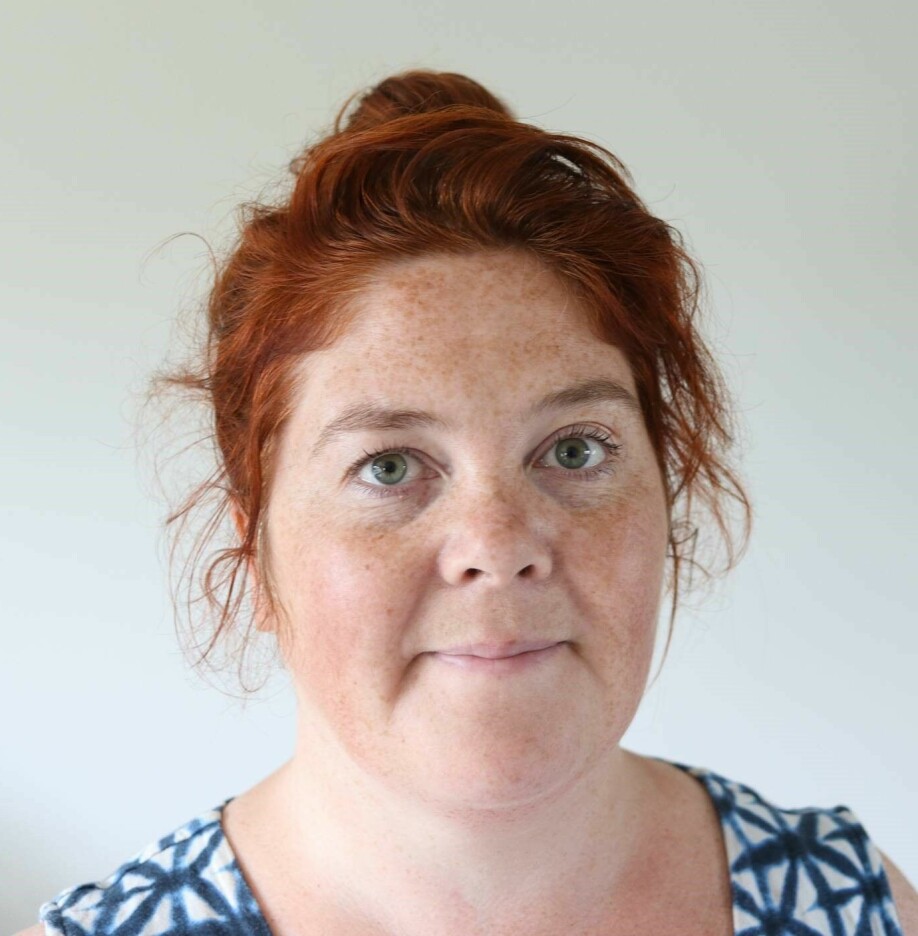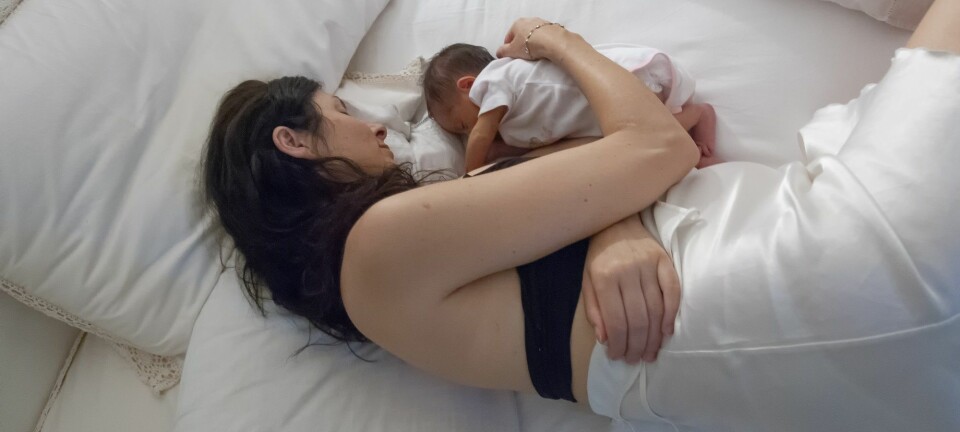
One in five new mothers was treated disrespectfully while giving birth during the pandemic
“I think it’s sad if one in five women is left with the feeling of not being treated with respect and dignity,” said one of the researchers behind the study.
A large European study of what it has been like to give birth during the first months of the pandemic in 2020 shows that new mothers paid a price.
“I think it’s sad if one in five women was left with the feeling of not being treated with respect and dignity. That’s a feeling that will stay with you in the future and won’t prepare you particularly well for your next birth,” Ingvild Hersoug Nedberg from UiT The Arctic University of Norway said to sciencenorway.no.

Nedberg is a midwife and one of the Norwegian researchers behind the new study.
More than 3,000 Norwegian women responded to the European survey published in the scientific journal The Lancet Regional Health - Europe.
Not enough help available
And these mothers didn’t just feel like the treatment they got was disrespectful. One in three also wasn’t offered help when they asked for it.
This finding is confirmed by another study, published as a preprint, meaning it has not yet been peer reviewed by other researchers.
More than 800 Norwegian women who gave birth during the pandemic responded to a questionnaire in which they could write freely about their experiences.
Many described feeling alone, especially after they had given birth.
"The days after the birth were very lonely, and I longed for my husband. It was difficult to get help (get food, talk about the baby or get a smile from someone). I felt that the employees were trying to avoid me, and no one asked me how I was doing,” wrote one women who gave birth during the pandemic.

Rules for partners were too strict
One of the researchers behind the study, Carina Vedeler, believes that the restrictions that were put in place regarding the presence of a woman’s partner might have been too strict.
Even though most women were allowed to bring a partner or another close person with them during the actual birth, the partner was not allowed to be at the hospital in the days following the birth.
“These rules have not taken into account how important it is to have your partner with you all the way,” Vedeler said.
Not everything is due to the pandemic
But is COVID-19 the only factor to blame for why so many mothers felt alone and ill-treated?
“First and foremost, we have to recognize that even though we are good, we are not good enough. We can’t attribute everything to the pandemic,” said midwife and researcher Eline Skirnisdottir Vik from the Western University of Applied Sciences to sciencenorway.no. She was also involved in the new European study.
Unfortunately, it is difficult to determine how much has changed since the arrival of the coronavirus.
But previous user surveys provide a clue.

Nothing new
In 2017, Norwegian women who had given birth answered similar questions. Only six to eight per cent of them experienced being treated disrespectfully or carelessly by health professionals.
Fourteen per cent said they felt that health professionals did not have time for them when they needed it, the user survey showed.
So this is not a new problem, but it seems to have gotten worse during the pandemic.
New organization a possible solution
Pregnant women asked for more personalized care before the arrival of COVID-19. They have also wanted their partners to be more involved, according to a previous study by Vedeler and her colleagues.
Vedeler thinks perhaps Norway’s health service needs to start organizing maternity care differently, so that both the women and the partners' emotional needs can be addressed along with medical needs.
Worse in many other European countries
At the same time, many women in other European countries had far worse experiences during the pandemic.
Although the proportion of Norwegian women who experienced disrespectful treatment was fairly average, Norway scored better in other areas.
While as many as one in five Spanish mothers experienced bad treatment by health professionals, Norway ranked lowest when it came to this statistic.
The Norwegian researchers don’t know exactly what the Spanish women experienced, but it could be anything from being pushed, beaten, patted, squeezed, physically restrained or gagged to being shouted at, insulted or spoken rudely to, being neglected or forgotten by the staff.
Of the eight per cent of Norwegian women who experienced mistreatment by health care providers, the problem mainly related to emotional abuse, such as being neglected, mocked or forgotten.
Were separated from their babies
In Romania, Italy and Spain, mothers were also separated from their babies for several weeks at the start of the pandemic, Skirnisdottir Vik said.
The move was intended to protect their children from infection.
“There have been great challenges in Europe and we may not have had the worst of it, compared to other countries, Vik said.
Translated by Nancy Bazilchuk
References:
Marzia Lazzerini et.al.: PlumX Metrics Quality of facility-based maternal and newborn care around the time of childbirth during the COVID-19 pandemic: online survey investigating maternal perspectives in 12 countries of the WHO European Region. The Lancet Regional Health - Europe, 2021.
Tine S. Eri et.al.: Giving birth and becoming a parent during the COVID-19 pandemic: a qualitative analysis of 827 women’s responses to an online survey in Norway. Research Square, 2021.
———
Read the Norwegian version of this article at forskning.no

































